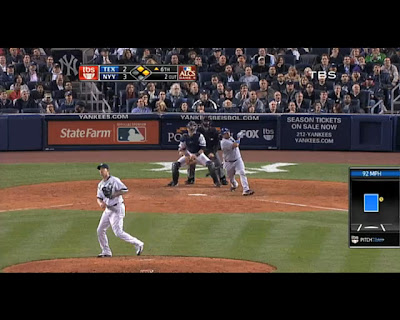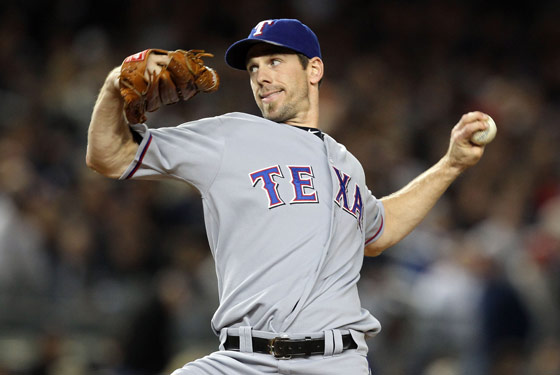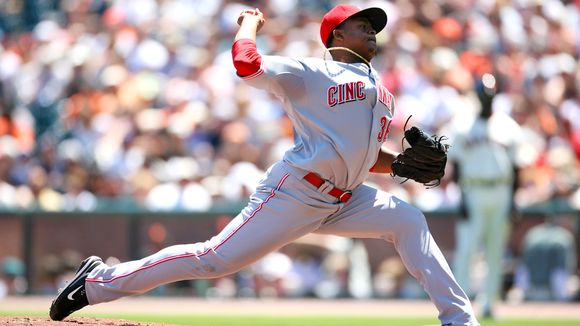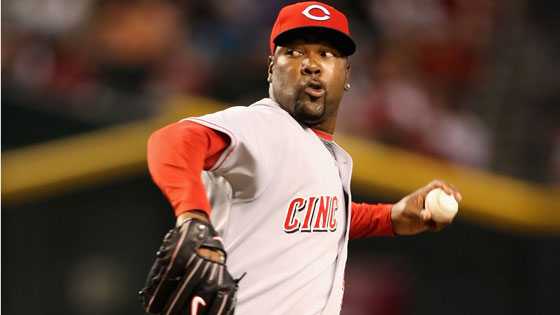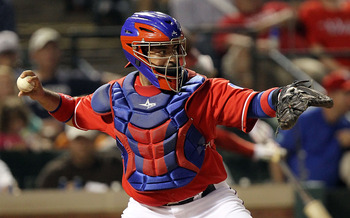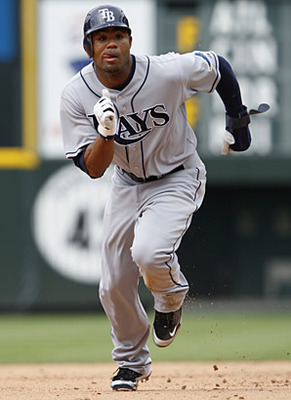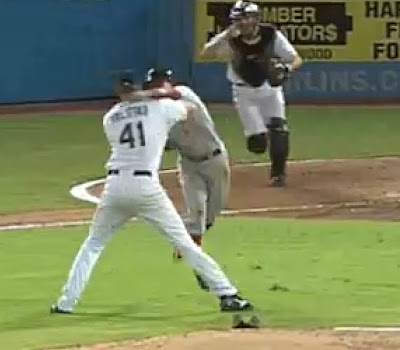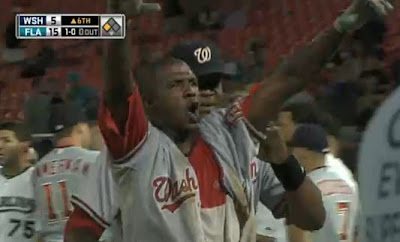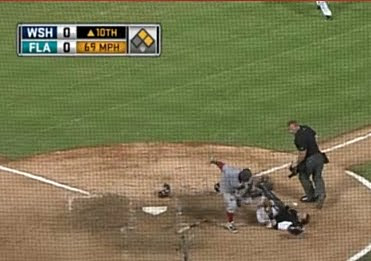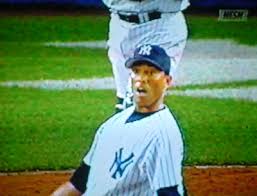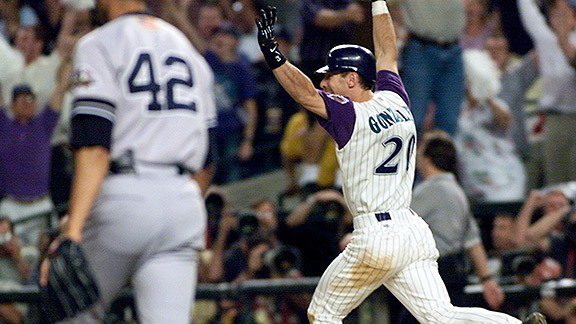The Washington Nationals made the biggest splash of the 2010 offseason to date on Monday, announcing a seven-year, $126 million contract for journeyman outfielder Jayson Werth. A Scott Boras client, Werth appears to be yet another exhibit in the case for Boras as the best agent in the business and the argument that one really good season can make almost anyone an extremely rich man.

Nationals' GM Mike Rizzo was quoted as saying,
"We got the inside scoop on who the man is and who the person is. [field manager] Jim [Riggleman] is a great judge of character and clubhouse presence. He was very flowery in his praise in Jayson on and off the field. He feels, like I feel, Jayson's best days haven't been had yet."
He refers to Riggleman's experience with Werth when he was a coach for the Dodgers, though it should be noted that
A) That was almost five years ago now, and
2) His enthusiasm over Werth's "character and clubhouse presence" didn't help much when Werth was trying to get recalled from a AAA rehab assignment and/or struggling for playing time over the likes of
Dave Roberts,
Ricky Ledee,
Steve Finley and
Jason Grabowski.
Werth was drafted by the Orioles in the first round of the 1997 draft and spent four seasons languishing in their inept farm system before getting traded to Toronto in December of 2000. In the majors he has been with the Phillies, Dodgers and Blue Jays, though he didn't become an everyday player until about the middle of 2007, when he was already 28 years old.
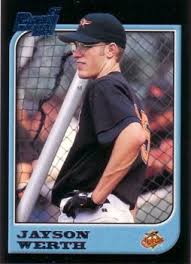
In roughly three and a half seasons with Philadelphia, Werth hit 95 homers, drove in 300 runs, hit .282/.380/.506 and stole 60 bases at a high rate of success. In 2010 he was one of the dozen or so best players in the National League, with 5.2 WAR (Wins Above Replacement, according to Baseball-reference.com, which was used for all of the calculations in this post).
But the real question, naturally is, "Is Rizzo right?" Do we have yet to see the best of
Jayson Werth? And, even if we do, can Werth possibly do enough over the next seven years to justify this contract?
Noting that 2010 constituted what is generally called a Career Year for Werth, I looked at all players who have qualified for the batting title and put up at least a 140 OPS+ in their age 31 season. (
OPS+ = On-base-Plus-Slugging, adjusted for league and park factors and set to a scale on which average equals 100. The age 31 season is so defined based on the players' age on June 30th of that year.)
There were 103 of them, including Werth and
Adrian Beltre, who also turned 31 this year, and therefore cannot be used to estimate what might happen down the road. For each of those 103 players, I checked to see what their previous career highs were in OPS+ (in a qualifying season) and at what age they occurred. Was this a career year for them? If not, when did they peak?

I also checked for the highest OPS+ in a qualified season* between the ages of 32 and 38, which is the span over which Werth's new contract will stretch. Is Rizzo right about Werth's best days still being ahead of him in spite of the fact that he's now potentially "over the hill" in baseball terms?
*
Some of them never again qualified for a batting title after their age 31 season, so instead I took their total OPS+ from ages 32-38 and used that as their "high" setting the age at 32. It seemed the best way to keep from completely skewing the averages. There were only three of these anyway: Larry Hisle, Elmer Flick and Juan Gonzalez.
Finally I tallied and averaged the total WAR between the ages of 32 and 38 for each player, to see whether any of them might have lived up to the
Jayson Werth deal. Some of them actually did, as we'll see.
So, as I mentioned, there are 103 such player-seasons, and recall that these are only the players who were 31 years old AND got enough at bats to qualify for the batting title when they accomplished this, and only since 1901. Therefore, the first thing we can notice is that this was hardly an historic season.
If we lower the plate appearance requirement to 400, we get 116 names. If we go back to 1876 instead of 1901, we get 118, even with the qualification requirement. If we change the criteria to a minimum of 5 WAR at age 31, we have 140 names, and so much data to sift through that my wife will never speak to me again, so let's stick with the OPS+ requirement. Since Werth is a right fielder, most of his value is in his bat anyway, and that seems mostly fair.
In any case, we've generally been told that players tend to peak in their late twenties, plateau for a while into their early thirties and then decline in their mid thirties. But Werth peaked at 31, it seems, and the question must be asked whether this is a mountaintop or a plateau, or - dare we say it? - merely the upward slope to still greater heights.
Stop laughing, I'm serious.
Well, anyway, of the aforementioned 103 players, about half (49) really did experience a career year at age 31, including Jayson, but not Beltre. That is, their OPS+ at that age was the highest they had yet posted in a qualified season. Of the remaining 48 for whom we have data for after their age 31 seasons, only 10 went on to still greater OPS+ heights in a qualified season.

Two others from that group,
Alex Rodriguez and
David Ortiz, are still playing and have not yet turned 38, so it's possible that they will top the peaks they reached at age 31, but it's not very likely. That suggests that for players who hit a new peak of at least 140 OPS+ at age 31, there is only about a 20% chance of improving on that at any point in the next seven seasons.
The remaining 54 players who had peaked before they turned 31 were still very good at that age. Though two of those (Beltre and
Todd Helton) have not yet completed their age 38 season, Helton is 36 now and has five seasons of production worse than his age 31 year, so I think it's fair to assume that he's not suddenly going to rebound at age 37 or 38. That leaves us 53 players for whom we can make some claim about their production over these ages.
Of those 53, 21 of them (40%) hit better than they did at age 31 some time in their mid-thirties, though not necessarily better than they had in their twenties. Werth is not in this group, as his previous OPS+ high was just 127, but it could be argued that if he had not suffered from a misdiagnosed wrist injury and/or the incompetence of Dodger management, he might have, so these data are still somewhat instructive.
Overall, 31 of the 101 players who have at least one season in the age 32-38 range managed to improve upon that age 31 season. And two-thirds of those had given some indication of being even better when they were younger, which Werth has not. Even being charitable toward Werth's lost time, then, it seems that he has only about a 30% chance of making good on Mike Rizzo's assertion that his best days lie some time in the future.
And keep in mind that many of the players, in their age 31 season or before, were vastly better than Werth has ever been, so there was more reason to expect great things form them going forward. While Werth just barely cleared the 140 OPS+ threshold we set, at 145, more than a third of the other 102 players posted an OPS+ of at least 175 either at age 31 or some time before that. For reference, 2010 National League MVP
Joey Votto's OPS+ was 174, so that gives you an idea of how good these guys were at some point in their careers.

Looking at it another way, if a Win Above Replacement is worth about $4.5 million, and that value increases by 3% annually due to inflation (even though baseball inflation is much different from traditional economic inflation, but we'll be conservative here) then in order to "break even",
Jayson Werth must amass about 26 WAR over the next seven seasons to justify his $126 million in total salary. That's assuming an average salary of $18 million, since exact terms are not yet available. The average production of the aforementioned 101 players was a shade under 18 WAR, so you can see we've got our justification work cut out for us.
Of course, we can
debate all day about the
value of a Win, but that $4.5 million seems reasonable in that a lot of outlets are using something like it, and it's unlikely that Wins will become less expensive over the next decade.
There have only been
46 players in the history of major league baseball who have amassed at least 26 WAR between their age 32 and age 38 seasons. Twenty nine of those 46 are already in the Hall of Fame, and seven more of them have Hall of Fame numbers but either aren't yet eligible (
Chipper Jones,
Gary Sheffield, Rafael Palmeiro,
Barry Bonds,
Jeff Kent), have been shut out due to the steroids scandal (McGwire) or have been banned for life (
Pete Rose).
Four others are borderline Hall of Famers themselves (Larry Walker,
Jim Edmonds, Lou Whitaker and
Edgar Martinez). The remaining six (Dolph Camilli, Gavvy Cravvath, Bob Johnson, Ken Williams, Tony Phillips and
Jose Cruz) were all exceptional old players who either got a late start in the majors (Johnson, Camilli, Cravath, Williams) or were not that good in their twenties but hit their strides later on (Phillips and Cruz). And Phillips may constitute an exception given the fact that his 30's coincided with the so-called Steroid Era, and that he may very well
have been a part of it.
Of course, there is some debate about the value of a Win. Some say it's really lower than $4.5 million, that one year contracts and the overvaluing of free agent relief pitchers skews the number higher, but I think it's probably about right when you consider
certain recent signings.
If you call the inflation rate 5% instead of 3%, Jayson would "only" need to amass about 24 WAR in the next seven years for the Nationals to break even, assuming they keep him for the length of the contract. That benchmark brings four other Hall of Famers into the mix (George Brett, Johnny Mize, Earl Averill and Luke Appling) plus five non Hall of Famers (Ichiro, Lefty O'Doul, Bill Dahlen, Dixie Walker, and Dwight Evans).
It's worth noting that Evans and Dahlen have (arguably) Cooperstown-worthy numbers when examined by modern metrics like WAR, but were under appreciated in their own times. Ichiro and Lefty both played the first halves of their careers away from the major leagues, but clearly were major league talents* even in their 20's.
*O'Doul was a great young pitcher who went 25-9, 2.39 ERA in 312 innings in the Pacific Coast League as a 25 year old, but he had arm trouble. So he turned himself into a power hitting outfielder, hit .369 over four seasons in the Pacific Coast League, and then went back to the majors and hit .365 over the next five seasons, winning two batting titles and narrowly missing two MVP awards in that span. Eat your heart out, Rick Ankiel.
So essentially, we've got a batch of 55 players, and about 90% them either are already in Cooperstown, will be someday, or played like Hall of Famers between the ages of 32 and 38. Among our 101 players who had at least a 140 OPS+ at age 31, only 25 amassed 24 WAR between the ages of 32 and 38, and 20 of them are Hall of Famers.
Anybody think
Jayson Werth is about to become a Hall of Famer?
Me neither.
So there we have it. Werth is only about 20-30% likely to improve upon his numbers this year, at best, which is actually a better chance than I'd have given him before I began this exercise.
And even if he
does improve, in all likelihood he'll only improve at age 32 or 33, and will decline thereafter. In the block of 101 players who played after their age 31 season, the average age at which they hit their next high in OPS+ was 33, and the most common age was 32. So Rizzo's probably wrong about that.
There have been about 4,260 players in history who have
played at least one MLB game between the ages of 32 and 38, but only 55 who have played well enough to live up to this contract. That works out to about 76-to-one odds, which for comparison is roughly the preseason betting line on the Baltimore Orioles winning the 2011 World Series. Actually, it's a little worse than that.
The only ways for Werth to somehow be (forgive me...)
worth his $126 million is either
1) to beat ridiculous odds and earn a huge pile of WAR over the next seven seasons, something that there is little evidence to suggest he can do, or
2) for the cost of a win to get really, really expensive. Like, six or eight million dollars.
That latter option may not be as ludicrous as it sounds, given that seven years ago it was only $2.8 million, or about 60% of what it is now. Still, even at that rate, by the time this contract ends in 2017, Werth will still need to be worth about three wins, which is hard to envision for a 38 year old outfielder.
That's not impossible, but it's pretty unlikely, unless we can somehow convince ourselves that Werth is really as good as Bonds, Ruth, Mays, Aaron, Cobb, Speaker or another half dozen or so of the best players in history, and we just haven't gotten to see that side of him yet.
I for one, can't.









